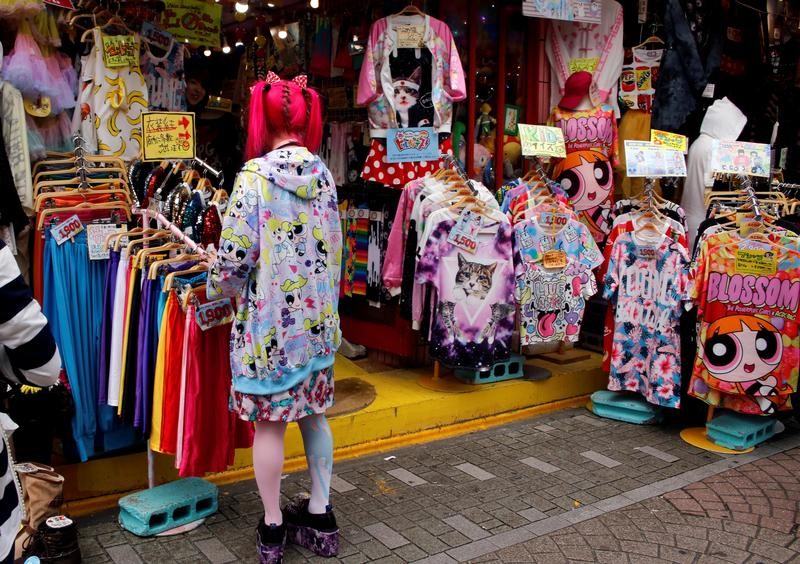(Bloomberg) -- Japan’s retail sales fell for a third straight month in February amid the country’s biggest wave of virus infections adding to concern that the economy’s recovery may have slipped back into reverse.
Sales fell 0.8% in February from the month before, as shoppers cut back spending on clothes and accessories, the economy ministry reported Wednesday. Analysts had expected a 0.3% decline. Compared with the previous year, sales were down for the first time since September, also falling 0.8%.
In a month when Japan saw new daily case numbers top 100,000 and restaurants and bars were asked to close early under quasi-emergency restrictions, consumers likely took on a more cautious stance. The last time sales fell in three straight months was at the height of the first wave of the pandemic in spring 2020.
The negative results supports the view that the world’s third largest economy stalled or contracted in the first quarter as consumption cratered. Most analysts said they expect Japan’s economy to shrink this quarter in a Bloomberg survey this month, as the omicron curbs and higher energy prices fueled partly by the war in Ukraine hit consumers.
“Quasi-emergency restrictions cooled consumer sentiment. People are seeing their disposable incomes being cut with food and gasoline prices rising,” said Hiroaki Muto, economist at Sumitomo Life Insurance Co. He still sees the economy narrowly avoiding a contraction, though he warns that consumption will remain weak with wage growth still muted.
To aid consumers hit by rising energy costs fueled by the war and a weakening yen, Prime Minister Fumio Kishida ordered measures to cushion the blow to consumers and businesses on Tuesday.
The response is also likely an attempt to keep public support buoyant ahead of a summer election and to ensure that a hoped-for rebound in consumer spending occurs after the lifting of restrictions earlier this month.
A subsidy program that attempts to cap gasoline prices at the pump was also extended through the end of April, according to trade minister Koichi Hagiuda.
Read More: Kishida Orders Measures to Shield Voters From Energy Cost Impact
“The new economic measures seem to focus on easing the pain for households rather than stimulating demand, which would accelerate inflation further,” Muto said. “So I see it is more for the elections than for the economy.”
If the weaker yen persists, driving already elevated import costs even higher, Kishida may be forced to take more steps to keep voters happy.
Anecdotally, a broad range of companies is already raising prices on products, as businesses face input costs that are increasing at the fastest pace in four decades.
The need to take action rests largely with the government since the Bank of Japan remains committed to keeping its monetary stimulus in place, a factor that has helped drive the yen to its lowest level against the dollar since 2015.
Following the BOJ’s monetary policy meeting earlier this month, Governor Haruhiko Kuroda stuck to his position that the weaker yen remains a positive overall.
More details from the report:
- Spending on clothing and accessories fell a seasonally adjusted 5.8% from January as shoppers put off purchases of springtime apparel due to the restrictions and cold weather, according to a ministry briefer
- Sales of motor vehicles and general merchandise rose from the previous month
(Adds more details from report)
©2022 Bloomberg L.P.
